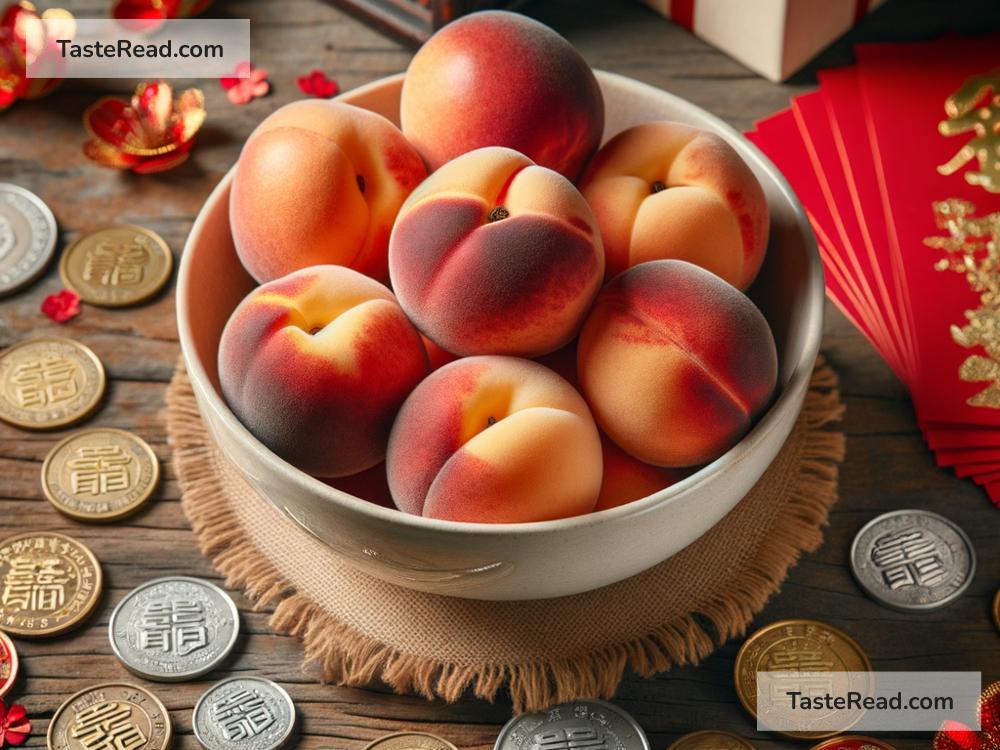How Peaches Became Symbols of Prosperity
Peaches are more than just tasty fruits—they carry a special meaning in many cultures around the world. Over centuries, peaches became symbols of prosperity, good luck, and even immortality. How did this humble fruit evolve from a simple treat to a powerful symbol? Let’s dive into the history and stories behind it.
The Origin of Peaches
Peaches have an interesting journey. They were first grown in China over 4,000 years ago. Early farmers in ancient China found these fruits to be sweet, juicy, and refreshing. Because peaches grew well in certain areas and had such a pleasant taste, they quickly became popular.
In Chinese culture, peaches were not just valued for their flavor—they were seen as something magical. Peaches often bloomed in the spring, which was seen as a time of renewal, growth, and abundance. Their round shape and soft color reminded people of fullness and harmony. Over time, people began to associate peaches with positive qualities like luck, happiness, and prosperity.
The Peach in Chinese Culture
One of the reasons peaches became a powerful symbol was their connection to ancient Chinese myths. In legends, peaches were linked to the idea of immortality. A famous story from Chinese mythology talks about “The Peaches of Immortality.” These special peaches grew in the garden of the goddess Xi Wangmu, also known as the Queen Mother of the West. It is said that these peaches only ripened every few thousand years, and anyone who ate them would gain eternal life.
Because of this legend, peaches became more than just a fruit. They were seen as gifts from the heavens, offering health, long life, and prosperity. Artists across China began painting peaches in their artwork, especially when they wanted to wish someone good fortune. Peaches appeared in everything from paintings and pottery to embroidery and sculptures.
Even today, during Chinese New Year and other celebrations, peach-shaped decorations are used to symbolize renewal, abundance, and success. Giving a peach or something resembling it can be a thoughtful gesture to show care and wish someone a prosperous life.
Peaches Around the World
The meaning of peaches didn’t stay in China alone. As the fruit spread to other countries, so did its fame as a symbol of prosperity. Peaches were carried along trade routes like the Silk Road, reaching Persia (modern-day Iran), Europe, and beyond. In each place, peaches became popular for their sweet taste, but they also kept their deeper meaning.
In European culture, peaches became linked to luxury and wealth. Since peaches were exotic and not easy to grow everywhere, they were considered rare and valuable. Royalty and wealthy families often included peaches in their feasts to show off their status. Over time, the fruit became connected to abundance and success.
In Japan, peaches carry a slightly different symbolic meaning but still relate to good fortune. According to Japanese folklore, a hero named Momotaro (or “Peach Boy”) was born from a giant peach. He grew up to defeat evil and protect his village, making the peach a symbol of strength, kindness, and luck.
Peaches in Modern Times
Even in modern times, peaches continue to be tied to ideas of prosperity. In many Asian cultures, peaches are used in festivals, weddings, and other special occasions as signs of good fortune and harmony.
Peaches also play a role in everyday life. You might notice peach-shaped designs in jewelry, business logos, or even household items, especially in countries where the peach is recognized as a symbol of wealth. Entrepreneurs might use the peach motif to represent growth and success in their companies.
Additionally, peaches have become a common symbol in health and beauty products. Since peaches are tied to vitality and youthful energy, they are often used in advertising to promote wellness and prosperity.
What Can We Learn from the Peach?
The story of peaches as symbols of prosperity teaches us an important lesson about how humans find meaning in everyday things. A simple fruit, grown by nature, can become an icon of abundance and happiness when people give it significance through myths, culture, and art.
Peaches remind us that prosperity isn’t just about money or material success—it’s also about health, happiness, and the ability to share good things with others. Offering a peach, wearing peach-themed jewelry, or even enjoying a slice of peach pie can connect us to centuries of tradition, reminding us to celebrate life’s sweetness and appreciate its blessings.
Conclusion
Peaches have come a long way from their origins in ancient China. Today, they are loved not just for their taste but for the rich symbolism they carry. Whether you see peaches in myths, art, or everyday life, they continue to stand for prosperity, renewal, and happiness.
So, the next time you bite into a peach, remember the history and meaning behind it. You’re not just enjoying a delicious snack—you’re connecting to a timeless symbol of harmony and abundance. And who knows? Maybe that peach is bringing a little good luck your way too.


